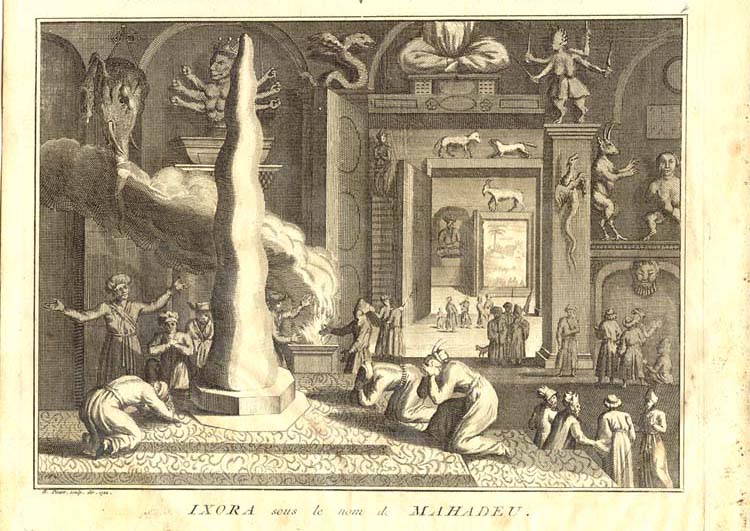FWP:
SETS
IDOL: {8,1}
SPEAKING: {14,4}
On the pronunciation of ;xuu as ;xo , see {125,1}. On the ambiguities of kyuu;Nkar , see {125,1}.
An enjoyable verse; the various commentators point to some of its complexities. If the lover can talk to his 'idol', he can appeal for justice: 'you yourself must say!'. But an idol who is capable of listening to such a plea, who is approachable enough to make such a plea worthwhile-- can that idol really be so stony-hearted, stonier than a stone image? Maybe so; this is the universe of the ghazal after all, and the lover is accustomed to getting the worst of all possible worlds. Or is the idol really stone, or stone-hearted, so that no reply at all is possible? That wouldn't necessarily stop the self-deluding lover from making his urgent, intimate appeal.
At the heart of the complexity is our uncertainty about whether the group of 'idols' mentioned in the second line includes the beloved (why is she crueler than all the other idols?), or is contrasted to the beloved (why is she crueler even than idols?). And of course, as Naiyar Masud points out, the verse could be addressed by any servant to any master. Then there's an additional layer of uncertainty about the speaker: is he included among the idol-worshippers, or contrasted with them?
A further layer of multivalence, as Bekhud Mohani observes, is provided by the excellently emphatic phrase 'a disposition just such as this' [aisii hii ;xuu], which is elastic enough to include all possible cruelties of commission (tyranny, anger) or omission (neglect, indifference). Thus our power to imagine the beloved multifariously is not at all circumscribed, but is even enhanced.
Note for translation fans: Why the '[must] say', when the Urdu familiar imperative is quite straightforward? It's actually a problem of English: 'you say' looks to an English reader like a finite verb, rather than an imperative. For the kind of 'crib' translation I'm making here, maximum possible clarity in conveying the Urdu is the chief goal.

Nazm:
That is, if idols would have a temperament like yours, then how would their worshippers have a living/livelihood? (134)
== Nazm page 134